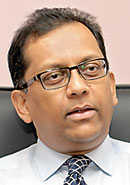Editorial
Don’t forget Ed.
View(s):In the US capital in close proximity to the famous Washington monument, 857 desks were placed as a protest organised by the College Board. It was to powerfully demonstrate the number of drop-outs from high school each school hour.
Those responsible for the protest carried placards saying ‘Don’t forget Ed’ for Education and asked the Administration and the Presidential candidates running for the highest office in the land to get off their fixation on funding wars around the world and fixing the economy.
Does that voice resonate in Sri Lanka? From 1998 to 2010 as many as 948 schools have been closed in the country. On an average, five (5) schools are closed every month. With the culmination of the nearly 30-year civil war there was hope that the long neglected areas of education, health and housing would get closer attention from the Government. Instead, the fixation seems to be with elections. Now, provincial elections have been called earlier than scheduled with the Government prepared to spend a colossal amount of money – in the millions, to prove its approval ratings with the people.
The recent Supreme Court ruling has opened the eyes of this administration to the malaise that faces the education sector. There are two ministers for the subject at the Central Government level and scores of provincial ministers of education resulting in even more chaos.
The fiasco of the Advanced Level results with errors in district and island rankings and the mishandling of the ‘Z score’ left thousands of A-Level students up the creek, desperately worried and uncertain of their future. Not all want to be politicians after all, to make a living.
At an event at Royal College this week, the Presidential Secretary referred to the “tinkering of education at the behest of individuals rather than a team of cohesive and rational thinkers”. The inference to be drawn from what he said is clear. He spoke of a disjointed system that leaves students unprepared for the modern world and addressed the vital issue of how well, or otherwise, Sri Lanka is attending to the continuing education of its youth.
Unfortunately, the benefits of the free education policy which some countries even in the economically developed world seek to follow have not been harnessed to produce national-minded citizens who can be on par, if not superior to their counterparts from countries which have a more recent history of education policies.
India, which is only now talking of a right to education, has arguably overtaken Sri Lanka. The Presidential Secretary spoke of India’s National Knowledge Commission which maps out a blueprint to meet the challenges of the future. Sri Lanka lags behind having lost the early lead it had when the free education policies were implemented. It is still grappling with mundane issues and getting its act together. To say that the education sector is in total disarray right now is an understatement.
And don’t ignore Deng.
The statistics speak for themselves. In 2011, there were 28,473 reported cases of Dengue with 185 deaths mostly from the Western province (Colombo 78, Gampaha 38 and Kalutara 11) and in the first six months of this year, the death toll stands at Colombo 27, Gampaha 14 and Kalutara 6.
Dengue is almost at epidemic levels say many and there are calls for a ‘war footing’ to better control the mosquito menace.
There is heightened activity with the onset of the rains, but figures from the Epidemiology Unit of the Ministry of Health show that though there is a surge of Dengue cases in some months due to the weather, they prevail throughout the year.
There is a monumental task to be carried out. Greater urbanization has resulted in greater garbage disposal issues. It was only the other day that the Defence Secretary referred to the number of Naval personnel who have fallen sick trying to clean up the clogged waterways in the city of Colombo.
Much of the problem is in tackling the basics. Garbage collection and fogging; clean-up campaigns especially in schools, tuition classes, markets, government institutions and even hospitals. A lack of community responsibility has seen only half-hearted drives to clean up. The credo seems to be ‘if you get it go to hospital’.
Dengue clinical management has no doubt improved in recent times. Lessons learnt from Thailand which has been dealing with the problem since 1958 have helped. Yet, monitoring cannot be limited to dengue death reviews at state hospitals. Without a finger-pointing exercise, Consultants must engage in a factual examination of how a patient died and analyse if that death could have been prevented.
There must be some Rapid Deployment Squads that check on areas from which Dengue Hemorrhagic Fever cases are reported.
In a country that faced a bloody insurgency for 30 years, we have become desensitised to the tragedy of unnecessary deaths. As a UNICEF head once said, ‘if 300 children died in a plane crash all the world’s attention would be drawn to it; but not so the thousands of children who die silent deaths’. That should not be the case in Sri Lanka with the ever mounting cases of dengue fever that may not be as horrifying as a terrorist bombing, but kill nevertheless.




















